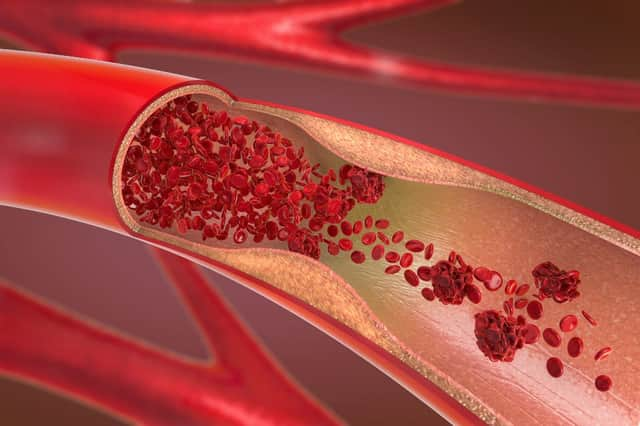Here's how to make your arteries younger according to medical experts


Many people have seen their morning commute transformed from a mad rush into a leisurely stroll to the next room.
But leading an inactive lifestyle could be very bad news for your arteries.
Advertisement
Hide AdAdvertisement
Hide AdYour arteries naturally become much stiffer as you age, which can lead to other health problems, such as high blood pressure.
And if you lead sedentary lifestyle, you could be ignoring the growing dangers within, according to The NHS, The American Heart Association and a new study at University College London.
Meanwhile those who remain active could reduce their artery age significantly.
So, whether you are old or young, here are a few steps to help keep your arteries healthy, which will be very beneficial in the long run.
Quit smoking
Advertisement
Hide AdAdvertisement
Hide AdSmoking and frequent exposure to secondhand smoke drastically increases your risk of developing both heart disease and a stroke, due to its hardening affects on your arteries.
Stretch it out
The recent UCL-led study found that other than simply increasing your amount of weekly aerobic exercise such as running and cycling, stretching at least five times a week actually helped maintain artery health and elasticity in people aged 40 and over.
If you're working from home, buy a yoga mat and find classes online to do during your lunch break or after work to stretch yourself into better health.
Lose weight and reduce blood sugar levels
If you have been told by your GP that you are overweight, losing some extra pounds could be good for your arteries.
Advertisement
Hide AdAdvertisement
Hide AdA healthy weight helps you to maintain lower blood pressure, normal blood sugar as well as healthier cholesterol and triglyceride levels.
Over time, high blood sugar can drastically harm the blood vessels and arteries.
Increase aerobic exercise
New research showed a 17-week running programme lowered the arterial age of subjects by four years.
The study at University College London saw healthy men and women taking part in a beginner’s marathon training programme, which required them to runs three times a week - each increasing in difficulty over the course of 17 weeks.
Advertisement
Hide AdAdvertisement
Hide AdResearchers found the programme had led to a dramatic decrease in aortic stiffness that was equivalent to a four-year reduction in arterial age.
According to the NHS website, you should try to get at least 2.5 hours of moderate-intensity exercise or one hour and 15 minutes of vigorous physical activity every week.
Doing so will dramatically reduce your arterial age.
Check your blood pressure
The NHS website advises you to keep your blood pressure down, explaining that high blood pressure "can put a strain on your arteries and organs, which can increase your risk of developing serious problems such as heart attacks and strokes."
It also advises you to check your blood pressure with a blood pressure test at your local GP surgery or selected pharmacies, "because most people won't have any obvious symptoms" of too high blood pressure.
It urges "having a test is easy and could save your life."
Advertisement
Hide AdAdvertisement
Hide AdHigh blood pressure is considered anything above 140/90 mm Hg, whereas optimal blood pressure is less than 120/80 mm Hg, according to The American Heart Association.
Control your cholesterol
High cholesterol levels add to the build-up of plaque in your arteries, which is known in the medical sphere as atherosclerosis.
This build-up can restrict the blood flow through the body, increasing blood pressure and ultimately making your arteries much narrower and stiffer.
So try to reduce the amount of saturated fat and trans fats you eat, for example by switching full fat butter to cholesterol friendly alternatives.